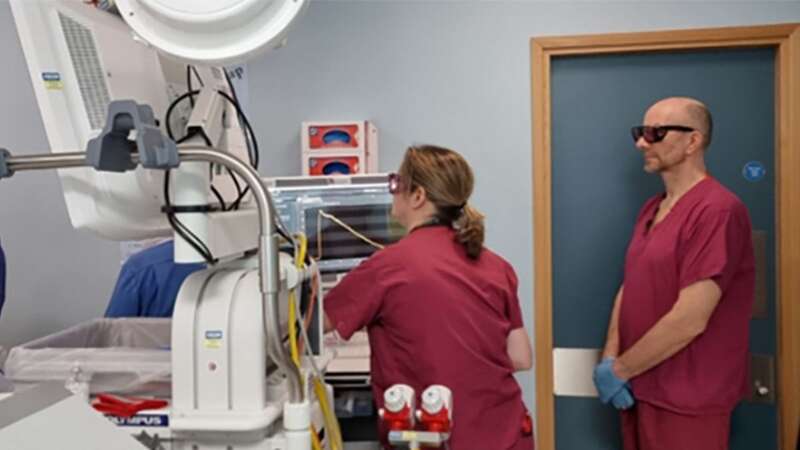
Scientists have made a startling discovery that could see one of the deadliest cancers diagnosed in just 30 seconds.
The “pioneering” technique will make it much easier for medics to diagnose oesophageal, which currently account for around 8,000 deaths in the UK each year. A team made up of experts from universities and hospitals have come up with a new technique to detect and diagnose the disease in seconds.
The project, called RaPIDE, uses a technique known as Raman spectroscopy to pinpoint cancerous cells using lasers almost instantaneously. Currently, it takes two weeks to diagnose oesophageal (food pipe) cancers but RaPIDE cuts that to under 30 seconds.
The team, led by Professor Nick Stone at the University of Exeter, say they hope that the breakthrough will mean quicker and more accurate tests in hospitals that will improve health outcomes for patients.
Spectroscopy is the study of how light is absorbed and reflected by different materials, in RaPIDE a low-power laser is shone at tissues in the patient's body. Medics are able to measure the light scattered by those tissues, this light looks different depending on whether the tissues are healthy or show signs of cancer.
 Brit 'saw her insides' after being cut open by propeller on luxury diving trip
Brit 'saw her insides' after being cut open by propeller on luxury diving trip
The new technique works by shining a light inside the patient's throat and also on samples of biopsied tissues. The observers are helped in their decision-making by an AI which analyses the results of the spectroscopy.
Clinical trials of the technique are now underway with 19 patients tested so far. “We are excited by the prospect of introducing this new tech />technology to benefit patients,” said Oliver Old, Consultant Upper GI Surgeon from Gloucestershire Hospitals.
"This technology can help us to target these early cancers more accurately, improving cure rates and reducing the need for major surgery.” Oesophageal cancers have minimal symptoms which means they are often diagnosed late, for this reason, they are the seventh most deadly form of cancer in the UK.
Dr Alex Dudgeon, Research Fellow at the University of Exeter said “If we can diagnose cancers and other abnormal changes with our device in seconds, without removing any tissue, this would revolutionise the field, saving time and the NHS money.
"With an instant diagnosis, treatment can be started earlier which will improve patient outcomes.”
The group, made up of experts from the University of Exeter, the University of Bristol, and Gloucestershire Hospitals NHS Foundation Trust are looking into whether RaPIDE can also be used to identify lymphomas and neuromuscular diseases.
RaPIDE stands for: Raman Probe for In-vivo Diagnostics (during oesophageal) Endoscopy. The study was funded by the National Institute for Health and Care Research which is the research partner of the NHS.
Read more similar news:
Comments:
comments powered by Disqus






























